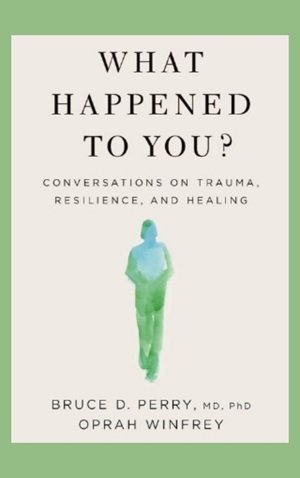The book Babel skillfully combines fiction and history. It falls into the category of Dark Academia. The talented author, Rebecca F. Kuang, invites readers to question colonialism and how great powers have historically exploited smaller nations. Kuang is a young American writer born in Guangzhou, China, who immigrated with her parents to the United States when she was only four years old. She has already garnered several prestigious nominations and awards for her gripping novels. One of her most recent and acclaimed works is Yellowface, which is at the top of my to be read list.
Through vivid storytelling and complex characters, Kuang delivers thought-provoking perspectives on the dynamics between oppressors and the oppressed. She highlights the value of true friendship while examining the position of women in the male-dominated academic arena of the 19th century. The book promises to be an enthralling and meaningful read.
Babel Introduction
The plot unfolds in 1836 in Oxford, England. Professor Richard Lovell decides to adopt Robin, a Cantonese orphan and brings him to Babel, an institution dedicated to translating books and documents from various nations into English. Babel recruits international students to have them learn many languages and later work as official translators.

Yet, midway through the story, we uncover Babel’s true purpose. The narrative entertains while inviting reflection on the differing mindsets between the dominant and the dominated. It also spotlights the significance of genuine camaraderie and examines women’s status in a male-centric academic milieu.
So, the tale opens as the boy sits at home next to his mother, who has perished along with all the other family members living there. To him, his mother and books are most precious.
Canton’s trip to England
Professor Richard Lovell, a man of high English society, enters the house and helps the extremely ill boy. He takes the boy out of the home and miraculously cures him using silver bars, preventing him from dying like the others. Once recovered, Professor Lovell tells the boy he wants to bring him to England for a better life and paid education. Intrigued by the offer, the boy accepts and travels with Richard to England, believing he can have a better future than an orphan in China.
Upon arrival in England, the boy undergoes medical examinations to confirm he has no tropical diseases. Settled in England, Professor Lovell suggests the boy adopt a more accessible English name, so he becomes Robin Swift.
In time, Robin wonders why Professor Lovell helped and chose him to bring to Great Britain. What had the professor seen in him that compelled such kindness and care, even adoption?
Gradually, Robin discovers an ability to manipulate silver ingots by uttering certain words in particular languages. He learns the books he received in China were sent by Professor Lovell, who also paid Miss Betty to teach Robin English and assist with his studies.
After Robin fully recovers, Richard takes him clothes shopping and begins the process for citizenship paperwork. Within weeks, Robin starts exploring the city, getting acquainted with his new home.
Robin begins his language studies.
Subsequently, Professor Richard Lovell hires tutors to teach Robin Latin, Greek, and Mandarin, initiating his preparation to enroll at Babel Institution in Oxford University. Robin proves to be a disciplined and diligent student. But, one day, Robin humiliates Lovell by arriving late to class. Lovell brutally beats him and threatens to send him back to poverty in Canton. After seven years of intensive study and dedication, Robin excels academically and gains acceptance into Babel.
The University of Oxford and Babel
Robin travels to campus and settles into the student dormitories. He quickly befriends his peers: Ramy from Calcutta, Victoire from Haiti, and Letty, the daughter of a white British admiral. There, they learn about the importance of translating languages into English, though some languages still need to be higher in priority. More “exotic” tongues like Mandarin, Haitian Creole, and Arabic are seen as the future of translation magic.
In Robin’s first week, he meets Griffin, a Babel ex-student, who invites him to join the Hermes Society secretly. This clandestine organization aims to undermine Britain’s supremacy in silver bullion. Griffin explains how Babel exploits foreign languages solely to solidify the British Empire’s dominance.
Hearing this, Robin feels conflicted. He dislikes that his work could aid British colonial expansion and inequality. Yet he envisions a comfortable future as a Babel translator if he studies diligently. Stressed by the secret society, Robin cuts ties with Griffin to focus on his Oxford studies.
Robin visits his home country.
After several years of study, Robin and his friends begin their internship year, joining real-world expeditions. Robin, Ramy, Victoire, and Letty go with Lovell on a voyage by sea to Canton. There, they will work as translators amid escalating tensions between the Qing dynasty and the British Empire. The Qing refused the British opium trade in China, provoking English business interests.
During the journey, Robin witnesses the British contempt toward the Chinese people firsthand. Upon understanding the valid reasons for China’s opium prohibition, Robin decides he can no longer take part in Britain’s imperialist ventures there. The trip goes twisted, forcing an abrupt return to England. However, a sinister crime transpires aboard the ship on the way home, one that will forever alter the lives of all involved.
The Truth Behind Babel
In England, Robin and his friends uncover Professor Lovell’s motivations behind the China negotiations. They realized the voyage served as a pretense to provoke a war, allowing Britain to seize China’s silver reserves.
Besides, Robin and his mates now strive to expose this information and halt the impending war. Yet, the challenge is formidable, tangled in intricate economic interests and influential figures.
During their struggle, Robin and his comrades opt for a drastic move: capturing students and professors in the Babel Tower of Oxford University. They believe force is the only way to dissuade them from the war. This bold action attracted radicals and reformers, fortifying Oxford against the British army. The aftermath is catastrophic for the nation, becoming a power struggle to prove dominance. Ultimately, the clash results in utter destruction.
Oppressor vs. Oppressed
In this fictional tale, crucial issues demand our attention. Let’s dive into the aspects that gripped me the most.
Firstly, the book delves into the notion that the end justifies the means, regardless of your side. The story unravels how numerous conflicts culminate in destruction, impacting ordinary people. It portrays how the oppressor and the oppressed believe in using harmful actions to uphold their ideals of struggle. It raises thought-provoking questions about the morality of such choices and their toll on societies.
Women and their right to education
The second theme dives into the relentless struggles women of that era faced to carve a place in education and the intellectual sphere. Victoire and Letty’s characters illustrate this battle. Letty, in particular, grapples with the immense difficulty of securing a spot at a prestigious university and earning respect for her knowledge and skills. Indeed, the narrative weaves a compelling story laden with underlying messages that resonate.
Share your thoughts in the comments below if you’ve already delved into its pages.



